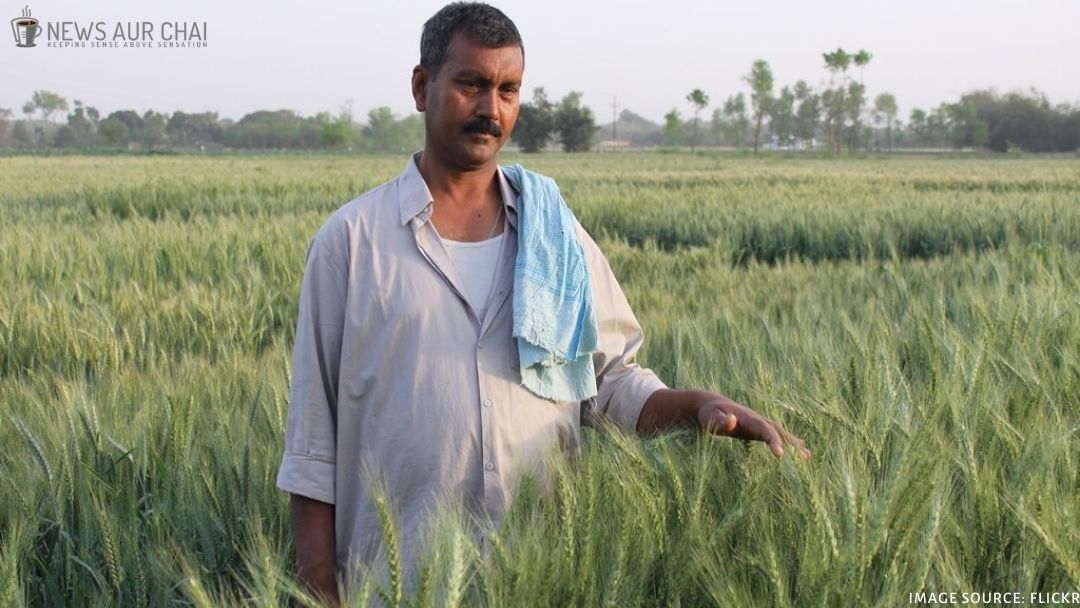
On Sunday, President Ramnath Kovind gave his assent to all three farm bills, thereby making it a Farmers Act 2020 that has infuriated the ongoing controversy and protests by farmers and oppositions.
Let us try to understand the Acts and their respective issues:
Farmers’ Produce Trade and Commerce (Promotion and Facilitation) Act:
- Provisions:
The Act majorly talks about “inter-state” and “intra-state” sales of agricultural produce beyond the physical premises of APMC markets.
AMPCs or Mandis (Agricultural market produce committee) is a state market system primarily established in the 1950s to protect and prevent farmers’ exploitation by large retailers by providing minimum support price (MSP). However, given recent times, due to lack of traders in these APMCs, more commission is charged by middlemen; certain traders and functionaries having monopoly led to less competitive prices for farmer’s produce.
With an intension to reform the agricultural sector, the Government enables the farmers to trade beyond these mandis. Farmers now have the freedom to directly trade with private sectors or individuals and sell their crops outside the state.
The Act nowhere directly implies that APMC or MSP would be abolished. The Government assured that these mandis would continue. The Act only encourages farmers to go beyond these markets and sell their produce at a competitive market price, as only 6 per cent of farmers benefit from MSP.
- The Act prohibits state Governments from levying any tax or market fee onto the outside trade of APMC.
If any trade occurs beyond the established mandis, the State or Central Government won’t levy tax. Initially, from the trade in the APMC market, the State Government would earn a certain market fee as they have established these markets. This provision is an incentive for private companies or individuals to directly connect with the farmers and offer them a better price.
- Concerns:
6 significant issues stated by the protestors about the Act:
- Transportation expense: In APMC, the farmers would sell their produce to the commission agent or intermediaries, and in turn, they would handle the transportation to respective buyers.
- Labors and Commission agents: The Sarkari mandis by State APMC act is widespread all over India and has become a source of livelihood to commission agents, several laborers, and accountants working in the market.
- No Taxes: Farmers believe that if no taxes are levied outside the mandis, the buyers would prefer the new system more than the established APMC; this is seen as a way to end the APMC market. It has also caused an uproar by states as they won’t have income from the same.
- Shanta Kumar Report of 2015: With only 7,000 APMC in India, most farmers don’t operate into the same. Only 6 per cent of farmers produce go to these mandis; the rest 94 per cent are sold to private buyers. This indicates that private buyers haven’t helped with the development of the agricultural sector.
- Bihar: The problem with APMC is immense; following this in 2006, Bihar abolished the same. However, the farmers still suffer price volatility and only attract private investments, which won’t lead to infrastructural changes.
- Agriculture is state subject: The states access the authority over the same, however, the Centre took the matters in hand by approaching the Act from “inter-state trade and commerce” under entry 42 of the Union List in the Seventh Schedule.
The farmers are worried that if trade outside the mandis is encouraged, it will eventually wipe out the APMC itself. This is a major cause of the uproar.
Many experts suggest that the APMC model should be renewed instead of a largescale agricultural reform. It is interesting to see that majority of the protests are occurring in states like Haryana and Punjab. The Government, here, is invested into a well-established APMC system, Arthiya (commission agent) working, and the state government buys the majority of wheat and paddy produce.
Farmers (Empowerment and Protection) Agreement of Price Assurance and Farm Services Act, 2020
- Provisions:
The Act creates a farming framework through an agreement between a farmer and a buyer before the production or rearing of any farm produce.
There are two ways to look at this provision:
- When the farmer comes into the contract with a buyer at a price, he will get his pre-determined price irrespective of the market situation. So that would benefit the farmer.
- On the other hand, if the same pre-determined price is less than the market after the production, it would lead to a farmer’s loss.
The major concern is that there is no mention of minimum support price (MSP) that buyers need to offer to farmers. Initially, a private company or an individual may offer a better pre-determined price. However, over the period, they would start offering less and less. The Act doesn’t link pre-determined price with Minimum support price.
- The Act provides a three-level dispute settlement mechanism: the conciliation board, Sub-Divisional Magistrate, and Appellate Authority.
Concerning a dispute, a farmer or a buyer may approach the set-up board for resolution. If the conflicts remain unsettled, they can reach the Sub-divisional Magistrate. The Parties will also have the right to appeal to an Appellate Authority (presided by collector or additional collector) against decisions of the Magistrate. However, no farmland would be confiscated as recovery due.
- Concerns:
The dispute related mechanism is dominated by the administrative part of the Government rather than the judiciary. This excludes the farmers from the domain of civil and other courts. A bureaucratic led mechanism may influence political or social identity. Experts suggest an amendment over the same by bringing the judiciary into the picture.
Essential Commodities (Amendment) Act, 2020
- Provisions:
The Act allows the Central Government to regulate the supply of certain food items only under extraordinary circumstances (war, famine, unusual price rise, natural calamity)
According to the Essential Commodities Act, 1955, the Union Government is empowered to amend the schedule to add or remove a commodity to it under the public interest and in consultation with State Governments. The Act eliminates cereals, pulses, oilseeds, edible oils, onion, and potatoes from the list of essential commodities list and operation and control by the Government during extraordinary situations.
- Concerns:
In extraordinary circumstances, the Government only ‘may’ choose to exercise regulation. Such legislative ambiguity makes one question the entire exercise of introducing this particular provision.
- The Act allows Stock limits to be imposed on agricultural produce only if there is a steep price rise.
The Government generally imposes stock limits to discourage hoarding items, including food commodities, such as pulses, edible oils, and vegetables. Stocking restrictions are only levied when (i) a 100 per cent increase in the retail price of horticultural produce; and (ii) a 50 per cent increase in the retail price of non-perishable agricultural food items. This paves the way for the Big cooperates to enter into the sector.
- Concerns:
The Act welcomes private individual’s investment; however, limiting the stocking to certain restrictions may increase hoarding by these individuals.
All three Acts lead to reformation in the agricultural sector, suggested by economics experts and several committees. The question about boon or bane with regards to the Act comes with its implementation. It is the perception at which the private individuals invest in the agricultural sector to decide the farmer’s fate.





